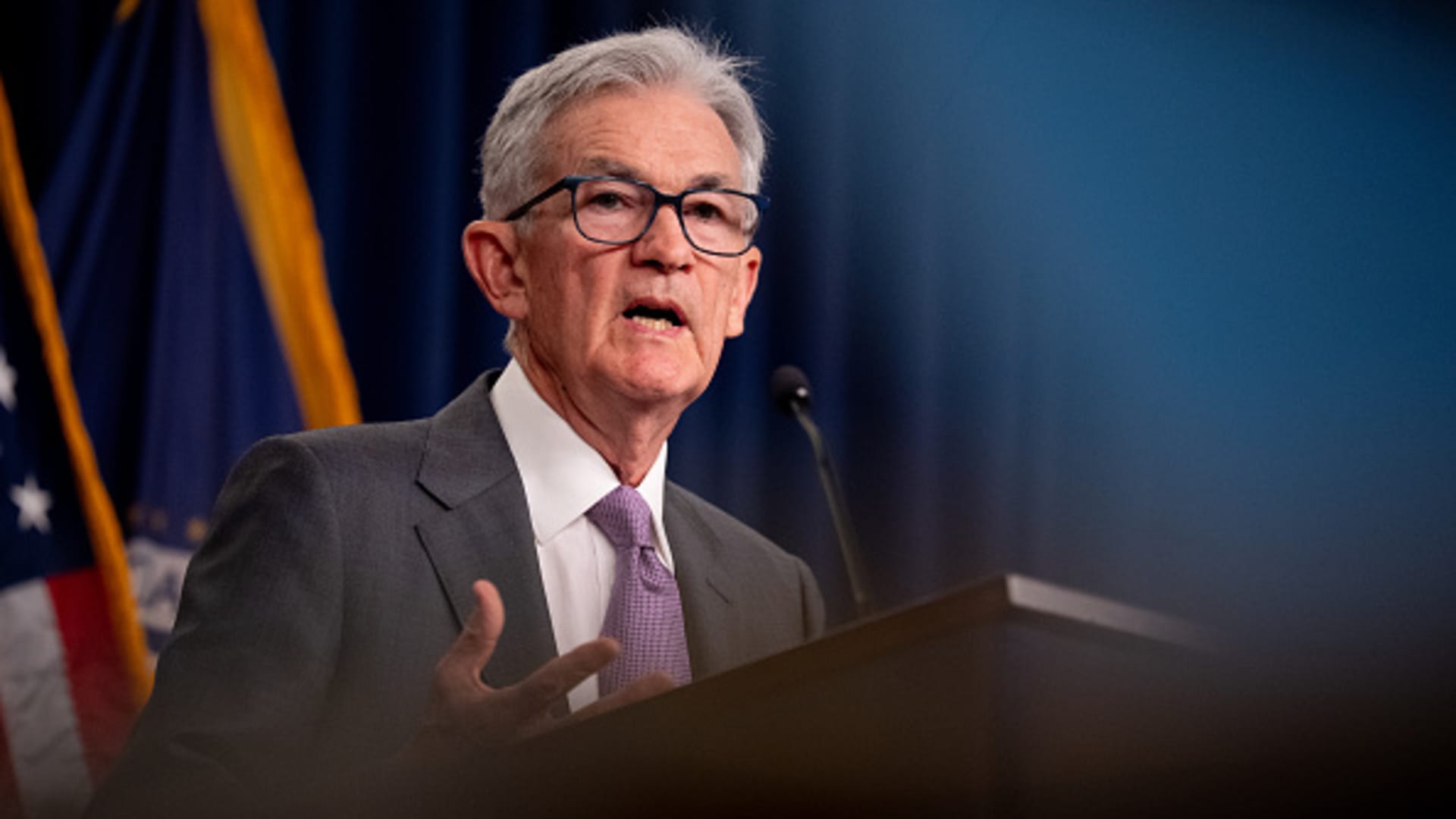Federal Reserve Chairman Jerome Powell.
Andrew Harnik | Getty Images
The U.S. Federal Reserve can afford to make a jumbo 50 basis point rate cut next week without spooking markets, an analyst has suggested, as opinion on the central bank’s forthcoming meeting remains hotly divided.
Michael Yoshikami, CEO of Destination Wealth Management, said Monday that a bigger cut would demonstrate that the central bank is ready to act without signaling deeper concerns of a broader downturn.
“I would not be surprised if they jumped all the way to 50 basis points,” Yoshikami told CNBC’s “Squawk Box Europe.”
“That would be considered, on one hand, a very positive sign the Fed is doing what is needed to support jobs growth,” he said. “I think the Fed at this point is ready to get out ahead of this.”
His comment follow similar remarks Friday from Nobel Prize-winning economist Joseph Stiglitz, who said the Fed should deliver a half-point interest rate cut at its next meeting, contending that it went “too far, too fast” with its previous policy tightening.
Policymakers are widely expected to lower rates when they meet on Sept. 17-18, but the extent of the move remains unclear. A disappointing jobs print on Friday stoked fears of a slowing labor market and briefly tipped market expectations toward a larger cut, before shifting back.
Traders are now pricing in around a 75% chance of a 25 bps rate cut in September, while 25% are pricing in a 50 bps rate reduction, according to the CME Group’s FedWatch Tool. A basis point is 0.01 percentage point.
Yoshikami acknowledged that a larger cut could reinforce fears that a “recessionary ball” is coming, but he insisted that such views were overblown, noting that both unemployment and interest rates remain low by historic levels and company earnings have been strong.
He said the recent market sell-off, which saw the S&P 500 notch its worst week since March 2023, was based on “massive profits” accrued last month. August saw all the major indices post gains despite a volatile start to the month, while September is traditionally a weaker trading period.
Thanos Papasavvas, founder and chief investment officer of ABP Invest, also acknowledged a “rise in concern” around a potential economic downturn.
The research firm recently adjusted its probability of a U.S. recession to a “relatively contained” 30% from a “mild” 25% in June. However, Papasavvas said that the underlying components of the economy — manufacturing and unemployment rates — were “still resilient.”
“We’re not particularly concerned that we’re heading into a U.S. recession,” Papasavvas told CNBC Monday.
The perspectives stand in stark contrast to other market watchers, such as economist George Lagarias, who told CNBC last week that a bumper rate cut could be “very dangerous.”
“I don’t see the urgency for the 50 [basis point] cut,” Forvis Mazars’ chief economist told CNBC’s “Squawk Box.”
“The 50 [basis point] cut might send a wrong message to markets and the economy. It might send a message of urgency and, you know, that could be a self-fulfilling prophecy,” Lagarias added.

 Blog Post1 week ago
Blog Post1 week ago
 Economics1 week ago
Economics1 week ago
 Finance1 week ago
Finance1 week ago
 Personal Finance1 week ago
Personal Finance1 week ago
 Accounting1 week ago
Accounting1 week ago
 Economics1 week ago
Economics1 week ago
 Personal Finance6 days ago
Personal Finance6 days ago
 Personal Finance1 week ago
Personal Finance1 week ago











